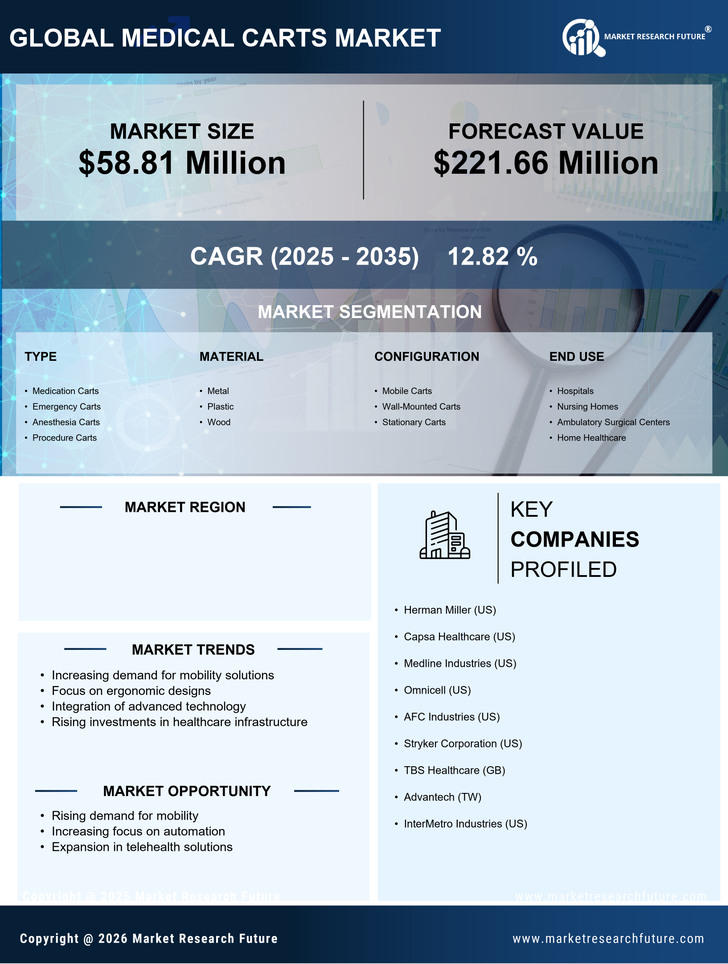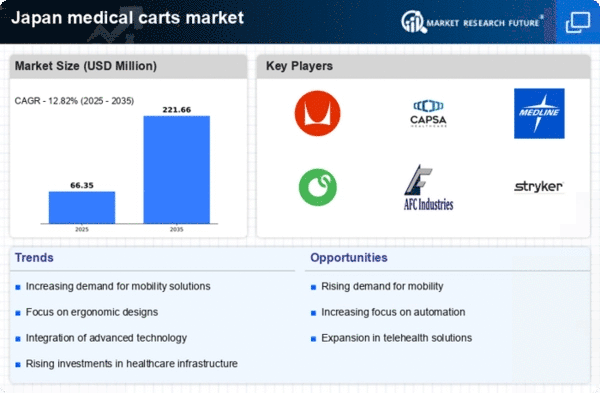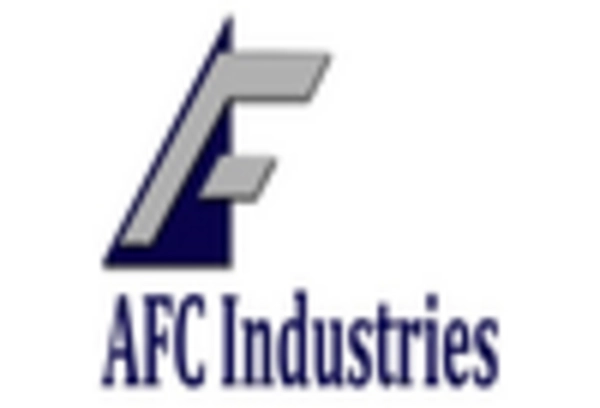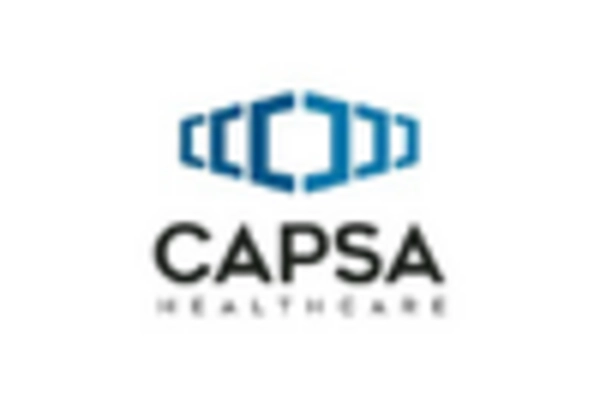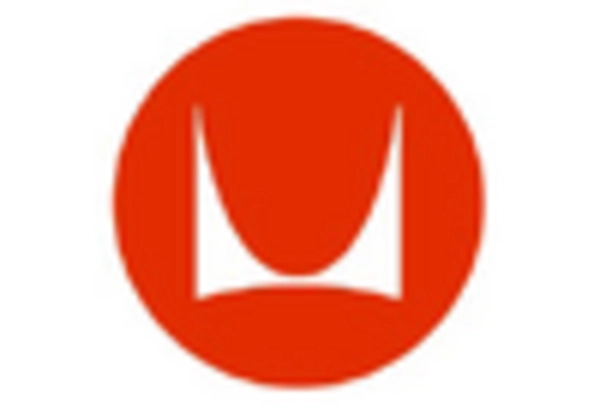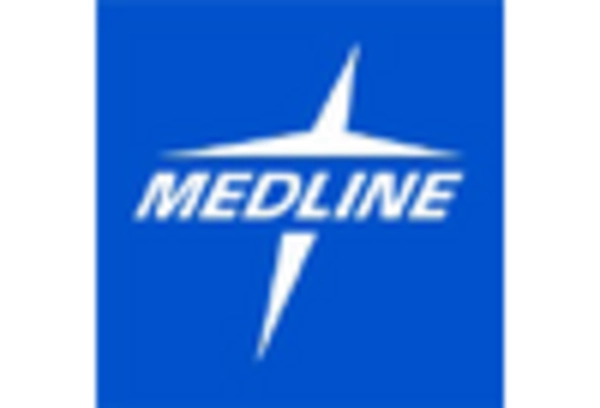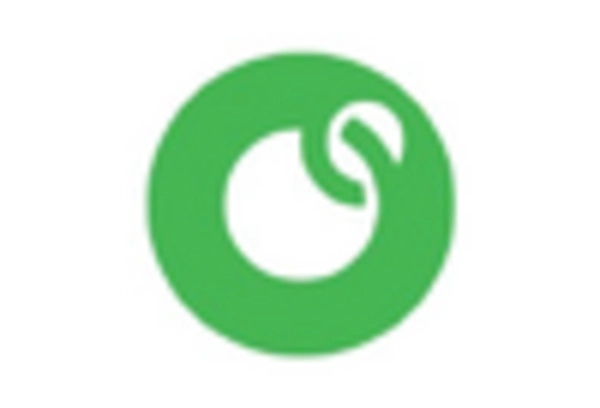Increased Focus on Patient Safety
Patient safety remains a paramount concern within the medical carts market. Healthcare institutions are prioritizing the implementation of safety protocols, which include the use of medical carts designed to minimize errors in medication administration and enhance overall patient care. The introduction of features such as locking mechanisms and secure storage compartments is becoming commonplace, reflecting a commitment to safeguarding patient welfare. In 2025, it is estimated that the market for safety-enhanced medical carts will account for over 30% of total sales, indicating a strong trend towards prioritizing patient safety in healthcare settings. This focus not only improves patient outcomes but also fosters trust in healthcare providers.
Shift Towards Mobile Healthcare Solutions
The shift towards mobile healthcare solutions is a driving force in the medical carts market in Japan. As healthcare providers seek to enhance accessibility and efficiency, mobile medical carts are becoming increasingly popular. These carts facilitate the delivery of care at the point of need, allowing healthcare professionals to provide services directly at the bedside. The convenience offered by mobile solutions is particularly beneficial in emergency situations, where time is of the essence. By 2025, it is anticipated that mobile medical carts will represent a substantial portion of the market, reflecting a broader trend towards patient-centered care and the need for flexibility in healthcare delivery.
Growing Investment in Healthcare Infrastructure
The medical carts market in Japan is significantly influenced by the growing investment in healthcare infrastructure. Government initiatives aimed at modernizing healthcare facilities are leading to increased procurement of medical carts. In recent years, substantial funding has been allocated to upgrade hospitals and clinics, which includes the acquisition of advanced medical equipment. This trend is expected to continue, with projections indicating that healthcare spending in Japan could reach ¥50 trillion by 2026. Such investments are likely to bolster the medical carts market, as healthcare providers seek to enhance operational efficiency and improve patient care through the adoption of modern medical carts.
Rising Demand for Efficient Healthcare Delivery
The medical carts market in Japan experiences a notable surge in demand driven by the need for efficient healthcare delivery systems. As the population ages, healthcare facilities are increasingly adopting medical carts to streamline workflows and enhance patient care. The integration of mobile solutions allows healthcare professionals to access patient information and medical supplies swiftly, thereby improving response times. In 2025, the market is projected to grow at a CAGR of approximately 8%, reflecting the increasing reliance on these carts in hospitals and clinics. This trend indicates a shift towards more organized and efficient healthcare environments, which is crucial for meeting the rising expectations of patients and healthcare providers alike.
Technological Advancements in Medical Equipment
Technological advancements play a pivotal role in shaping the medical carts market. Innovations such as integrated electronic health records (EHR) systems and telemedicine capabilities are increasingly being incorporated into medical carts. These advancements not only enhance the functionality of the carts but also improve the overall quality of care provided to patients. The market is witnessing a shift towards smart medical carts equipped with features like real-time tracking and inventory management, which can potentially reduce operational costs by up to 15%. As healthcare facilities continue to invest in advanced technologies, the medical carts market is likely to expand significantly, catering to the evolving needs of the healthcare sector.
